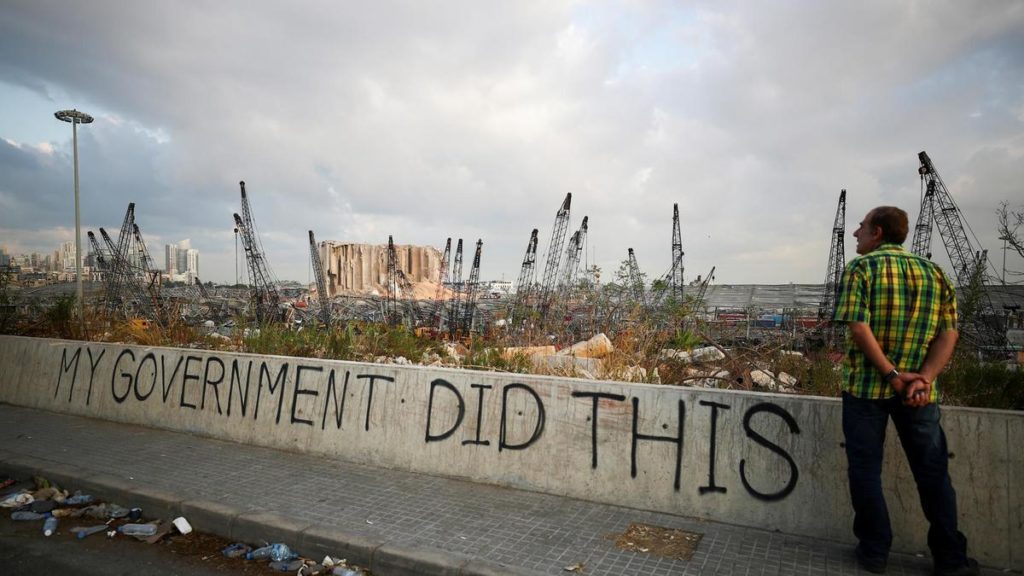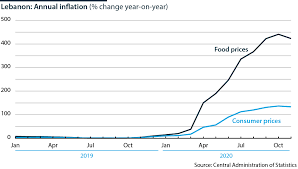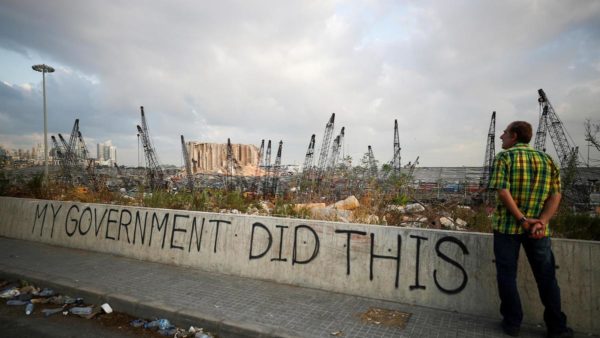By Dana Khraiche and Ainhoa Goyeneche

Lebanon’s annual inflation rate reached a record high and food prices soared by up to 400% in December, highlighting the dramatic impact on consumers and businesses of the country’s worst financial crisis in decades.
Annual inflation was 84.9% in 2020, compared to just 2.9% a year earlier, according to data released by the government’s Central Administration of Statistics on Thursday. It’s the highest since 2013, when the current readings began. Consumer prices jumped 145.8% in December versus the same month of 2019.
Breakdown of December price increases from a year earlier:
- Food and non-alcoholic beverages rose 402.3%
- Alcoholic beverages, tobacco up 392.5%
- Clothing and footwear increased 559.8%
- Restaurants and hotels rose 609%
- Furnishings, household equipment and routine maintenance up 655.1%
Lebanon’s currency collapsed after political and financial crises escalated in 2019, with foreign currency inflows and the central bank’s reserves dwindling.

The official peg of 1,507.5 pounds per dollar only applies to imports of fuel and pharmaceuticals, with essential food items bought at a central bank-supported rate of 3,900 pounds. The Lebanese currency has reached 8,800 per dollar on the black market.
Aid talks with the International Monetary Fund have stalled after disputes with commercial lenders and the central bank, the country’s largest debt holders.
The government resigned in the aftermath of a massive explosion in Beirut in August, and has been running the country in a caretaker capacity as efforts to form a new administration have stalled. There has been little stimulus to save an economy that’s also been battered by a raft of measures to control a spike of coronavirus cases.
Bloomberg


Leave a Reply
You must be logged in to post a comment.